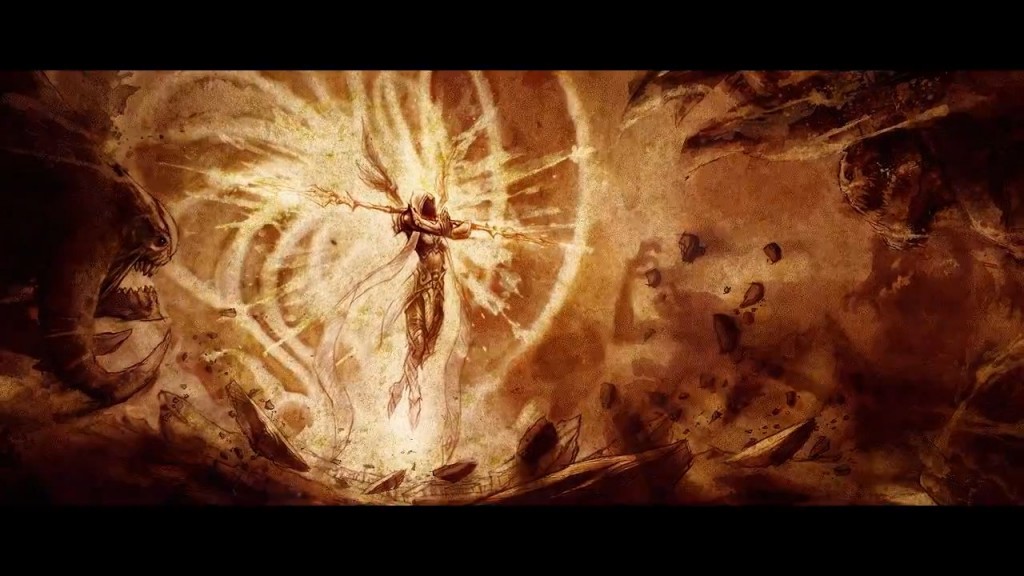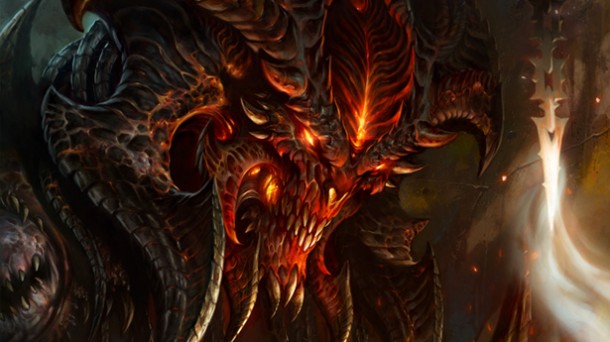Last updated on March 4, 2013
I’ve probably talked about this before, but this article and this (and the story surrounding it) fascinated me enough that some thoughts on the subject seemed timely enough.
Fantasy universes have always, in my mind, been fascinating little introductions into human psychology. Think about it for a second. People creating their own metaphysical universes, with powers and gods and all those traditional ingredients that come along with it, but they still saying something relevant to our society. On the other hand, they may just provide the context for a rocking good time with a game because the elements become interesting, emotional, or just plain fun (not much psychological about that, obviously). It’s difficult, especially, to create a central conflict in many of these universes without a side or antagonist that universally represents what we in human terms would call “evil”. In one sense, you wouldn’t have anything to fight. On the other hand, what challenge can one create without conflict? It’s a delicate balance on either side, and it takes some forethought to make it work as a narrative that doesn’t make you scratch your head or become completely frustrated (see: Lost. Sorry Abrams, anything you touch makes me wince).
Having been mostly involved in World of WarCraft lore, Diablo strikes a fitting contrast to that complex, sorta-real-world diplomatic solutions and misunderstandings and now we’re at war with something. Diablo, even with its M rating, displays a more typical forces of good versus forces of evil. However, I’d say it hits a key more akin to ancient myths of the Babylonians or the Persians than anything remotely out of a Christians context. Sure, there’s imagery of devils and angels all over the games, but that’s because Blizzard, in being a part of Western culture, inherited all of this original medieval literature that even finds use today to describe the spiritual realms. In other words, it’s a unique mix that makes Diablo a product of the integration of several different mythologies.
To give a cursory summary, it’s basically Manichaeism. The Manichees were a religious sect popular in the 4th-5th centuries which believed that humans lived in the middle of a great cosmic battle between the forces of good and the forces of evil. These two factions, both absolute in their righteousness or evil, continually seek to bring the tide of the universe to their side, and this includes the human beings. These spiritual kingdoms constantly manipulate and work the humans into their grand scheme to “win the war” once and for all. Thus, the human kingdom becomes the battleground for the fate of the universe.
Diablo does not steal from this liberally – it basically takes this structure and runs with it. However, the middle realm in Diablo was created by a rogue angel and his demonic lover precisely to end the war, and this realm gained the name “Sanctuary”, for it held a place where neither absolute righteousness or evil holds sway. Diablo expands upon these ideas. The entire universe was created in an endless divine conflict, including the three realms. Some angels and demons, tired of the endless conflict between angelic and infernal forces, sought a refuge away from the conflict where countless worlds and realities fell and rose from the constant war. Thus, these “refugees” formed Sanctuary, and became the nephalem. They are the first creatures of creation to contain possibilities, that of good, evil, or neither, unlike everything else in the entire Diablo universe. However, their creator (the angel mentioned earlier) forced limitations upon them, crafting humanity in the process. Thus, they are creatures containing infinite variations within pre-determined boundaries.
Strangely enough, even Augustine has something on this point. The reason why Saint Augustine abandoned the Manichees was the lack of possibility, of responsibility for good or evil. It is the same problem of the Diablo universe, in essence. As Augustine said, “It still seemed to me that it is not we who sin, but some other nature within us that is responsible. My pride was grati ed at being exculpated by this theory: when I had done something wrong it was pleasant to avoid having to confess that I had done it, a confession that would have given you a chance to heal this soul of mine that had sinned against you.” Rather, “I liked to excuse myself and lay the blame on some other force that was with me but was not myself. But in truth it was all myself, my sin was the more incurable for my conviction that I was not a sinner.” That’s why a Manichean structure did not work for Augustine – responsibility. And that is why the two sides can never end their conflict – because they have no will to change it. Free will doesn’t exit – until Sanctuary.
In Diablo, however, we see that the humans can awaken their nephalem powers and become something of an anomaly among the beings of the realms – much like human beings in what we know of physical reality. In time, the forces of Heaven and Hell arrive on the scene. Hell, especially, sought to bring these humans under their control, and it was only the humans themselves that overthrew their Hell oppressors, saving the Heavenly realms and allowing the humans a chance to exist (as Heaven decided that this foul offspring halfbreed deserved obliteration, but that vote was rescinded). Both factions of Heaven and Hell signed a non-intereference agreement about Sanctuary and continued their wars elsewhere.
Hell, obviously, doesn’t hold up its end of the bargain – hence, the Diablo games. These demonstrate a rather traditional representation of evil that continues even today, with one side as always in the right and the other as the constant oppressor. This exists in every way and every context.
However, one belief system where this “equality” between forces of good and evil doesn’t exist at all is Christianity. I think anyone who takes a look at the Bible will see that evil forces tend to be the result of personal failing, rather than an actual demonic force. Even the word demon and devil are sparingly used (mostly in the New Testament). The snake in Genesis, although usually identified as the devil because it talks, may or may not be related to the Satan of traditional Christian folklore (we don’t know whether animals used to talk, for instance). The verses typically identified as describing the fall of Lucifer and the angels in Isaiah 14 doesn’t give us even “the accuser”, or “to accuse”, as Satan means. Job is the only one I can find, really, and that one makes sense – only God allows Satan to act freely in any sense. Revelation, though describing these various aspects, basically gives us a cursory glance at best on the mechanics of Christian metaphysics, and we’ve constructed a narrative based on those tiny details, in many case. We know only that Satan destroys and prowls around like a lion, seeking to devour those on the side of righteousness (1 Peter 5).
Diablo, obviously, plays to the easy strains of good and evil, and no conclusions in that story ever occur because of the constant war. Most endings in that universe end with horrible compromise or deception, all part of a grander conflict where humans represent but a unintentional casualty of the universe’s upheavals. But Christianity, and reality as an extension, aren’t a constant struggle of spiritual forces making you do bad things. YOU do bad things. It’s easy to place the blame on some external force of death and destruction, but not so easy to admit sin and have permanent failings. If we believe in God enough, that Christ died for us, and that Christ gives us the power to change the world through Him, what could possibly stand against a Christian living in discipleship? Blame yourself so you can learn from your mistakes, rather than holding onto them. Follow the way of Jesus, not of the world – any belief in such a conflict only confuses Christianity and reinforces the moral viewpoint of the prevailing worldly paradigm. That should not stand.
Of course, there’s plenty of Scripture demonstrating and promoting belief in God’s sovereignty, power, and absolute control over all things – not a weak theology by any stretch. In a subtle bit of irony, I’ll end with Isaiah 14, which also tells the tale in God’s plans for the fall of Assyria:
24 The Lord of hosts has sworn saying, “Surely, just as I have intended so it has happened, and just as I have planned so it will stand, 25 to break Assyria in My land, and I will trample him on My mountains. Then his yoke will be removed from them and his burden removed from their shoulder. 26 This is the plan devised against the whole earth; and this is the hand that is stretched out against all the nations. 27 For the Lord of hosts has planned, and who can frustrate it? And as for His stretched-out hand, who can turn it back?”


